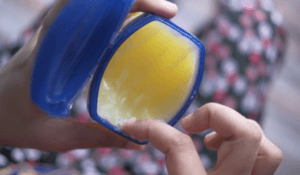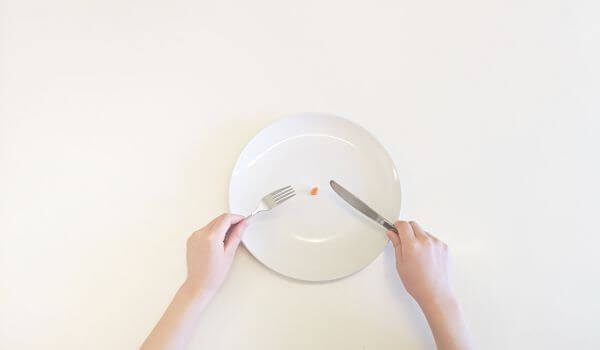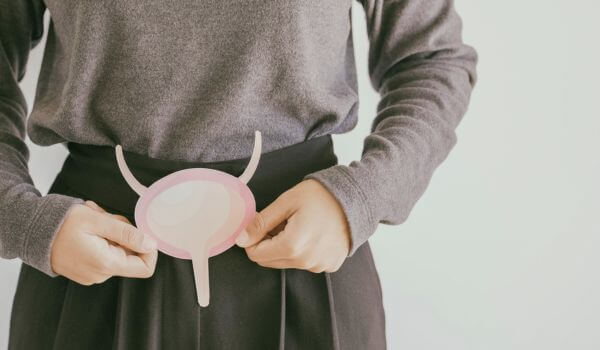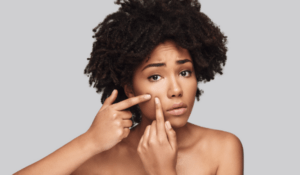 Like most teenagers, I went through many years of acne breakouts that made me want to cry and hide my face from my friends. Although we were told that it’s just a “passing phase” and we would “grow out of it,” in fact, acne can be a persistent and hard-to-treat condition that carries on well into adulthood and can even get worse as you grow older, turning into severe nodular acne. This was the case for me, and it took many years and many different attempts to find the right treatment before the doctors started me on the road that finally led to clear, healthy skin, thanks to (what was then) a radical new treatment called Accutane. It is known to be the most effective treatment for persistent acne, but it comes with a number of acknowledged side effects. Take it from me as a seven-month user – they can impact everyday life in unexpected ways, influencing even small decisions that might not have been given a second thought before starting the medication.
Like most teenagers, I went through many years of acne breakouts that made me want to cry and hide my face from my friends. Although we were told that it’s just a “passing phase” and we would “grow out of it,” in fact, acne can be a persistent and hard-to-treat condition that carries on well into adulthood and can even get worse as you grow older, turning into severe nodular acne. This was the case for me, and it took many years and many different attempts to find the right treatment before the doctors started me on the road that finally led to clear, healthy skin, thanks to (what was then) a radical new treatment called Accutane. It is known to be the most effective treatment for persistent acne, but it comes with a number of acknowledged side effects. Take it from me as a seven-month user – they can impact everyday life in unexpected ways, influencing even small decisions that might not have been given a second thought before starting the medication.
Before sounding as if the story I’m going to tell is all gloom and doom, it’s important to make it clear that Accutane is a valuable treatment option for people with this serious condition that can have a big impact on their everyday lives if not addressed. On this website, my colleagues and I have written several blogs that dive in greater depth into the conditions it treats (primarily severe cystic/nodular acne) and the spread of the condition from what was wrongly regarded as a purely age-related group (teenagers) to the whole population. The merits of Accutane as the acknowledged preferred treatment for severe nodular acne was the focus of one blog, dealing in depth with how Accutane treats severe nodular acne.
Accutane is a serious medication and needs to be used with appropriate care. While it’s reasonable to have concerns about it, that doesn’t mean you need to deny yourself the great benefits it can bring or put your life on hold while taking it. However, being cautious and aware of Accutane’s and don’ts is wise.
So, you’re about to start Accutane, or maybe you’ve already popped the first few pills. Before you start frantically Googling, “What should I NOT do while on Accutane?” welcome! You’re in for a wild ride, but don’t worry – I’ve been there, and I’ve got your back. To help you navigate the process, here’s your essential Accutane Survival Guide: ten things I learned you absolutely, positively need to avoid while taking this powerhouse medication. Let’s dive right in!
Say goodbye to sunbathing
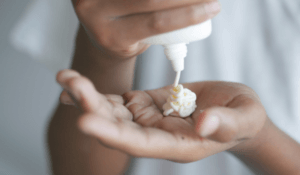
Tanning while taking Accutane is a big no-no. The UV rays that are part of sunlight can lead to serious skin issues, including permanent discoloration, a higher chance of sunburn, and an increased risk of skin cancer. UV rays can worsen common Accutane side effects like redness, dryness, and itching. That’s why anyone on Accutane needs to use sunscreen daily, even on cloudy days, and avoid spending time in the sun. Oh, and if you think tanning beds are a workaround? Nope! Those are even worse, as they expose you to concentrated UV radiation.
Lay off the booze 
Accutane is already tough on your liver; guess what else? Alcohol. Accutane and alcohol don’t mix. While I rarely drank when I was on the medication, I did have a birthday party where I indulged in a few glasses of wine. Although they had no immediate ill effect, I woke up the next morning with the mother of all hangovers. Pounding head and completely dehydrated, with uncomfortable stomach pain. It felt ten times worse than any “the mornings after” I had had before and was not worth a couple of glasses.
Mixing Accutane and alcohol can cause serious and uncomfortable side effects on their own, as well as make Accutane’s side effects worse. This is especially true if you drink heavily or binge drink. Accutane is processed by the liver, and so is alcohol. So, consuming alcohol while taking it can raise the chance of liver damage. It can also cause stomach issues like nausea and vomiting.
It’s not just the hangover, either. On its own, Accutane can increase your cholesterol and triglycerides, which alcohol can make worse.
Steer clear of a vitamin A overload 
Accutane is basically a turbocharged version of vitamin A, so adding even ‘more’ vitamin A to your system is a recipe for disaster. Accutane diet guidelines are not too restrictive, but this means no vitamin A supplements and no multivitamins with high doses of it.
Watch out for fortified foods, too. Some cereals, protein bars, and even dairy products sneak in extra vitamin A, and you don’t want to overdo it unknowingly.
Vitamin A is stored in fat, which can build up over time and lead to toxicity. Symptoms of too much vitamin A include headaches, nausea, vomiting, dry skin, dry eyes, hair loss, and in severe cases, liver damage. It’s essential to let your doctor advise you before starting to use over-the-counter supplements while on Accutane.
Some moisturizers aren’t your friend 
Accutane is well known for drying out your skin, and I mean DRY. We’re talking about peeling, cracking dryness. And while you might do what I did, which was to instinctively grab my favorite lightweight, organic moisturizer – in my case, rosehip oil and natural balm – let me stop you right there: not all moisturizers will cut it. I’m all about natural skincare, but when I started to get dry skin and lips from Accutane, no matter how much I increased the amount of rosehip oil I used, my lips remained constantly peeling, even if I reapplied every few minutes. Eventually, I caved and used my grandmother’s solution for anything relating to the skin … good old Vaseline, which turned out to be a game changer! My lips stopped shedding! Vaseline creates a barrier on the skin, preventing moisture from escaping. This is exactly what I needed to combat the drying effects of Accutane. So, I would moisturize with a good occlusive moisturizer before bed, then slather on the Vaseline to hold all that moisture in. It worked like a charm!
Beware of antibiotics (especially cyclines)
If your doctor ever prescribes antibiotics while you’re on Accutane, get them to pause and double-check. Certain antibiotics, especially the cycline family, like Oracea (doxycycline), Minocin and Dynacin (minocycline) can react with Accutane and cause a condition called pseudotumor cerebri (PTC), a fancy way of saying increased brain pressure that can cause headaches and vision issues.
The moral of the story? Always inform your doctor, dentist, and pharmacist that you’re on Accutane before taking any new medications. Make sure the prescribing doctor has the full picture. While not all antibiotics can cause issues with Accutane, it’s always a good idea to be cautious and confirm with the prescribing doctor to ensure it’s safe.
No skipping birth control (seriously!)
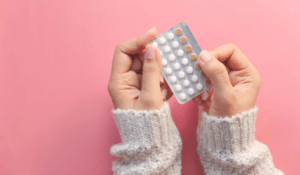
For my time on Accutane, I had the Kyleena IUD inserted to ensure I could not forget birth control. If you’re in the United States, you will have to enroll in the FDA’s program called iPledge, which is specifically for people on Accutane and requires monthly negative pregnancy tests and the use of two forms of birth control for the drug to be continually dispensed. Even if you’re not sexually active, most doctors will still require some form of birth control just to be safe. This shows the seriousness of potential risks and why taking necessary precautions is critical.
Hold off on exfoliation (even though you’re tempted)
There’s something so satisfying about sloughing off dead skin and revealing a fresh, glowy layer. But when you’re on Accutane, exfoliation is a hard no.
Your skin is already fragile, and using scrubs, retinoids, or chemical exfoliants can cause irritation, redness, and even tiny microtears. I once (accidentally) exfoliated too hard with a towel and ended up with raw, sensitive patches that took days to heal. Learn from my mistakes. Be gentle with your skin and give Accutane the time to do its thing.
Topical retinoids are forms of vitamin A and can lead to side effects such as dryness and peeling. When combined with the weakened skin barrier caused by Accutane, they can make the skin even more sensitive and lead to even more discomfort.
Instead, I opted for super hydrating serums, like those with hyaluronic acid, to help replenish moisture, along with plenty of Vaseline.
No waxing and laser hair removal
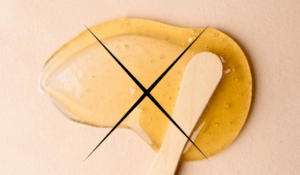
People on Accutane should stick to safer hair removal methods like shaving or using hair removal creams. I stuck to shaving as I found a lot of the hair removal creams had too much of a burning sensation on my already sensitive skin. These options might not be the most convenient, but they help avoid skin damage and reduce the risk of long-term side effects like scarring or changes in skin color.
Save the tattoo while treating severe nodular acne
Thinking about getting a tattoo? Even more to be avoided than exfoliation, a tattoo is an absolute no-go. Accutane slows down the skin’s healing process. Tattoos work by piercing the skin and depositing ink, which can cause severe damage and scarring to already sensitive and fragile skin. This means any kind of body modification (including microblading and dermaplaning) could lead to infection or, as happened to me, just a tattoo that bled outside of the lines, leaving it patchy and blurry once it was healed. Anyone treating severe nodular acne with Accutane should be aware of this. Give it at least six months after the final dose of Accutane before committing to any permanent skin changes. Trust me, you want your skin in its best condition before making a lifelong decision.
Don’t expect instant results – patience is a virtue!
Accutane is amazing, but it’s not magic. Be patient – like all good things, it takes its time! The first few months of my treatment, it even looked like the severe nodular acne was getting worse! With the side effects, I was disheartened and wanted to come off it, but my dermatologist encouraged me to trust the process. Sure enough, my skin was almost completely clear by seven months into treatment. Now, five years after finishing the treatment, I will only get random spots here and there that are usually triggered by hormones. Nothing like the painful cysts that affected my self-confidence for years. Was it a bit of an arduous journey being on this treatment? Yes. But was it worth it in the end? For me, absolutely.
FAQs
How does Accutane stop severe nodular acne?
Accutane decreases the production of oil by the skin’s glands and speeds up the skin’s renewal process. Accutane is prescribed for severe nodular acne that hasn’t improved with other treatments, such as antibiotics.
Does Accutane affect mood?
Accutane can lead to mood changes, such as agitation, irritability, or unusual behavior in some individuals. It may also increase the risk of depression or suicidal thoughts. If you, your child, or a caregiver notices any of these symptoms, contact your doctor immediately.
Does Accutane cause hair loss?
Accutane may lead to temporary hair thinning or loss as a side effect in a small percentage of people. Factors like higher doses, extended treatment duration, and older age may increase the likelihood of this side effect.
How to protect the liver on Accutane?
To safeguard their liver while using Accutane, individuals can avoid alcohol, maintain a healthy weight, follow a balanced diet, and stay active with regular exercise.
How long does it take for blood test results to go back to normal after Accutane?
A study found that in 92% of monitored patients, liver enzyme levels normalized within three months following treatment. During this time, cholesterol levels stabilized in 79% of patients, while triglyceride levels returned to normal in 80%.



